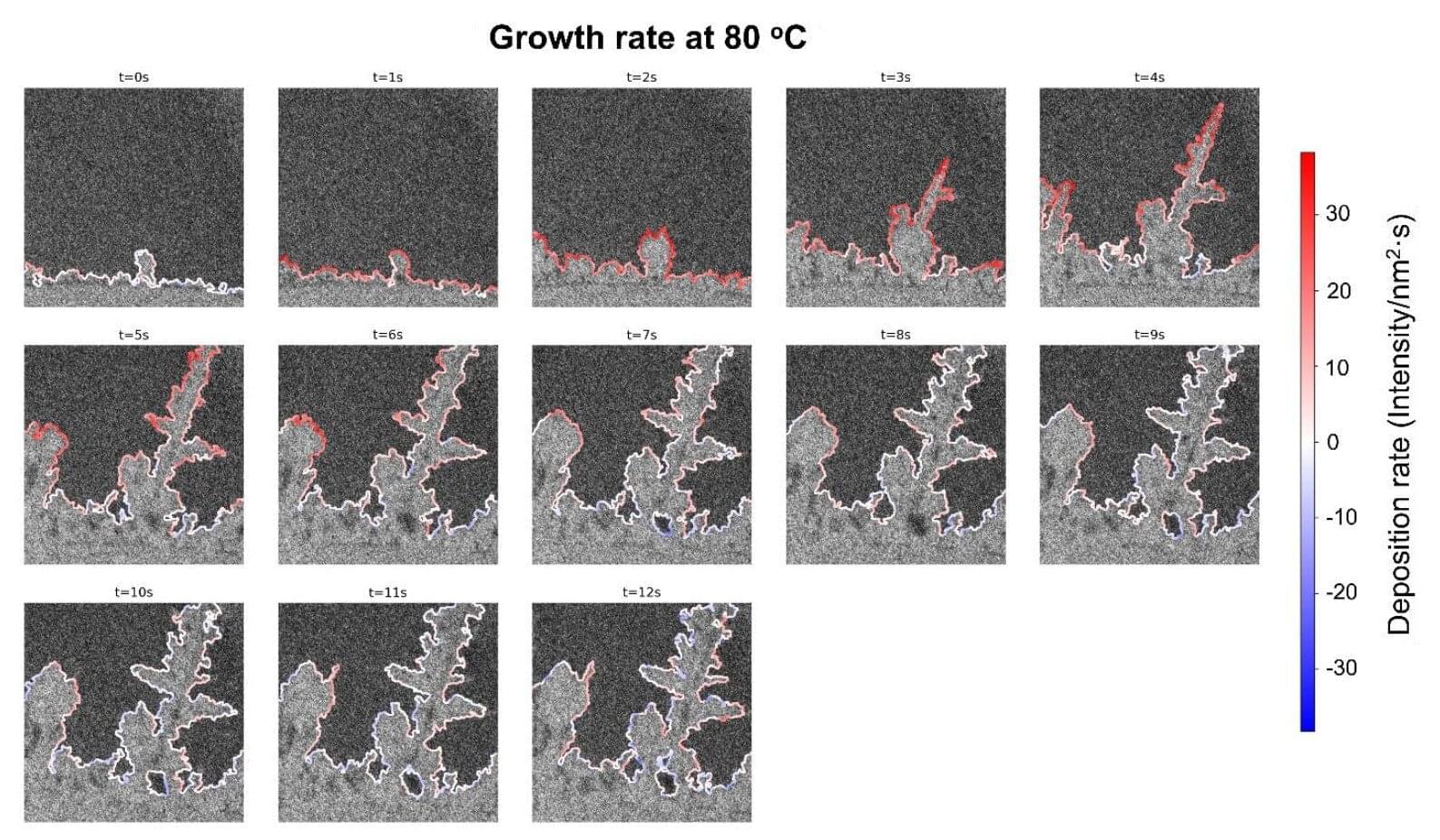Charging electric-vehicle batteries in Ithaca’s frigid winter can be tough, and freezing temperatures also decrease the driving range. Hot weather can be just as challenging, leading to decomposition of battery materials and, possibly, catastrophic failure.
For electric vehicles (EVs) to be widely accepted, safe and fast-charging lithium-ion batteries need to be able to operate in extreme temperatures. But to achieve this, scientists need to understand how materials used in EVs change during temperature-related chemical reactions, a so-far elusive goal.
Now, Cornell chemists led by Yao Yang, Ph.D. ‘21, assistant professor of chemistry and chemical biology in the College of Arts and Sciences, have developed a way to diagnose the mechanisms behind battery failure in extreme climates using electron microscopy. Their first-of-its-kind operando (“operating”) electrochemical transmission electron microscopy (TEM) enables them to watch chemistry in action and collect real-time movies showing what happens to energy materials during temperature changes.
